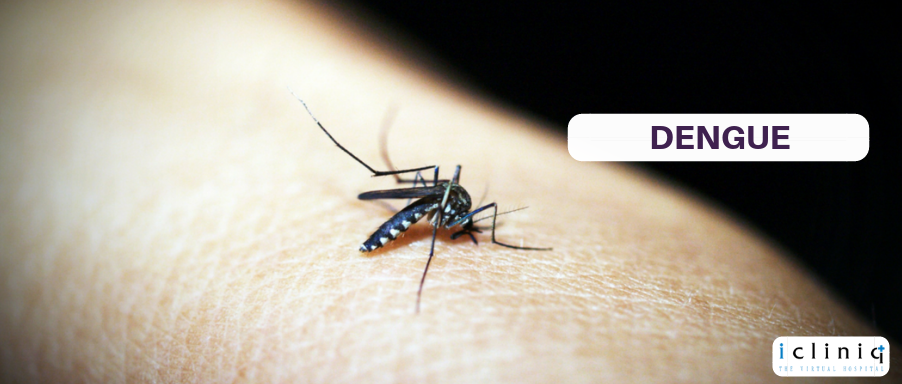Does Dengue arise only because of Mosquitoes?

In the recent times, dengue fever cases have increased multifold. From children to adults, a lot of people are affected. Dengue is a mosquito-borne tropical disease typically caused by the dengue virus. Commonly found in the tropical and subtropical areas; the virus results in a fever that can last from 2 to 7 days. While there is no method to prevent from catching the virus, several steps have been introduced by the government to keep the disease at bay.
 The virus is the Flaviviridae RNA virus family, which is also responsible for other fevers including yellow fever virus, West Nile virus and many more. There are five types of dengue fevers of which the fifth type was announced recently in 2013. Transmitted through the Aedes mosquito family, the virus is carried in the beak and affects the human when the mosquito bites. The virus feeds on the platelets within the body, thus affecting the bloodstream. Some of the symptoms of the fever include severe joint pain, swollen lymph nodes, fever, rashes, headache.
The virus is the Flaviviridae RNA virus family, which is also responsible for other fevers including yellow fever virus, West Nile virus and many more. There are five types of dengue fevers of which the fifth type was announced recently in 2013. Transmitted through the Aedes mosquito family, the virus is carried in the beak and affects the human when the mosquito bites. The virus feeds on the platelets within the body, thus affecting the bloodstream. Some of the symptoms of the fever include severe joint pain, swollen lymph nodes, fever, rashes, headache.
Typically, these mosquitoes are known to bite early morning or late in the evening. It should also be noted that only a female mosquito bites once it is affected by the virus itself. These mosquitoes lay their eggs on artificial water containers. The presence of pools of water with unusual water clogged is the trigger point for dengue to spread. Hence, the fever sets in during the monsoon time as water is available in the forms of puddles. In some severe cases, dengue hemorrhagic fever (DHF) affects children under the age of 10. Other symptoms include severe rashes, fluid accumulation in the lungs, or even bleeding.
While there are no ways to prevent dengue fever from spreading, one can follow these simple steps to protect from getting affected.
 1. Ensure that the environment does not have excess water including puddles. Sometimes even the rain can fill an open bucket that can be a source for breeding. Preventing the presence of water bodies is the foremost step in living in a dengue-free zone.
1. Ensure that the environment does not have excess water including puddles. Sometimes even the rain can fill an open bucket that can be a source for breeding. Preventing the presence of water bodies is the foremost step in living in a dengue-free zone.
 2. Use mosquito repellents. The strong pungent smell of these repellents prevents mosquitoes from biting. Although one does not have control over the mosquitoes, prevention is always better than cure.
2. Use mosquito repellents. The strong pungent smell of these repellents prevents mosquitoes from biting. Although one does not have control over the mosquitoes, prevention is always better than cure.
 3. Having a healthy immune system can help fight the dengue virus. Since the virus travels through the blood while targeting the platelets of the body, eating healthy food can strengthen your system thus contributing to a quicker recovery. Papaya leaves, pomegranate are rich in blood oxidants thus helping in improving bloodstream.
3. Having a healthy immune system can help fight the dengue virus. Since the virus travels through the blood while targeting the platelets of the body, eating healthy food can strengthen your system thus contributing to a quicker recovery. Papaya leaves, pomegranate are rich in blood oxidants thus helping in improving bloodstream.
 4. Spray the garden with pesticides to prevent breeding. Gardens usually have a lot of moisture and water. This can be a place for mosquitoes to lay eggs and spread the disease. Ensure that the garden is water only with sufficient water without excess wastage to curb mosquito breeding.
4. Spray the garden with pesticides to prevent breeding. Gardens usually have a lot of moisture and water. This can be a place for mosquitoes to lay eggs and spread the disease. Ensure that the garden is water only with sufficient water without excess wastage to curb mosquito breeding.
Although the above steps help prevent dengue, one should also be prepared for when they catch the virus. If there are any of the symptoms mentioned above paired with the onset of fever, consult with a doctor immediately. Taking chances, especially with an illness as deadly as dengue, is not advisable.





